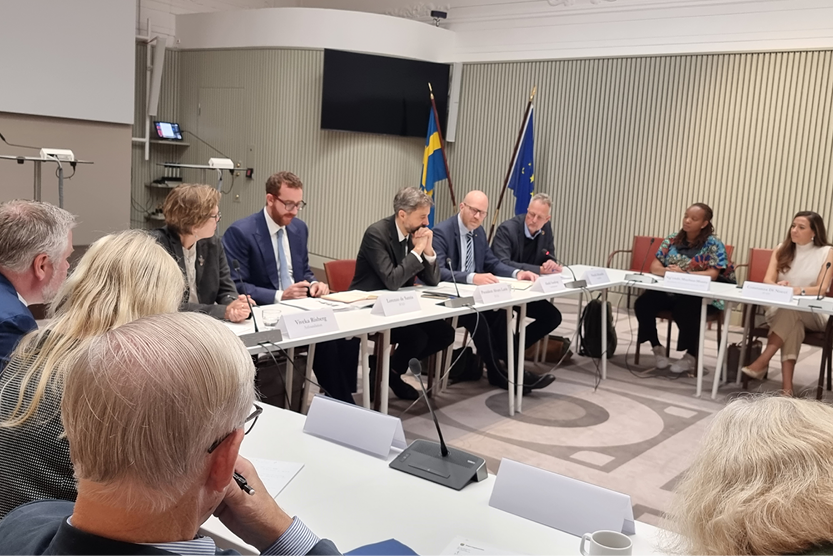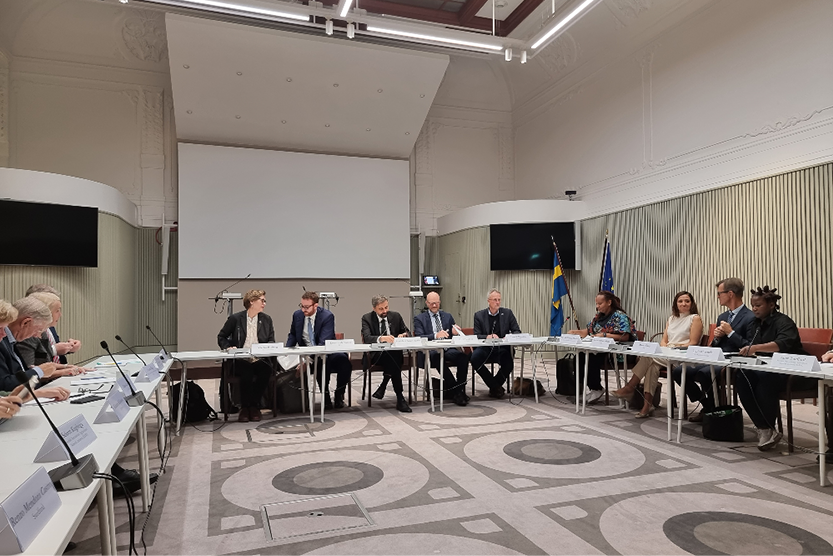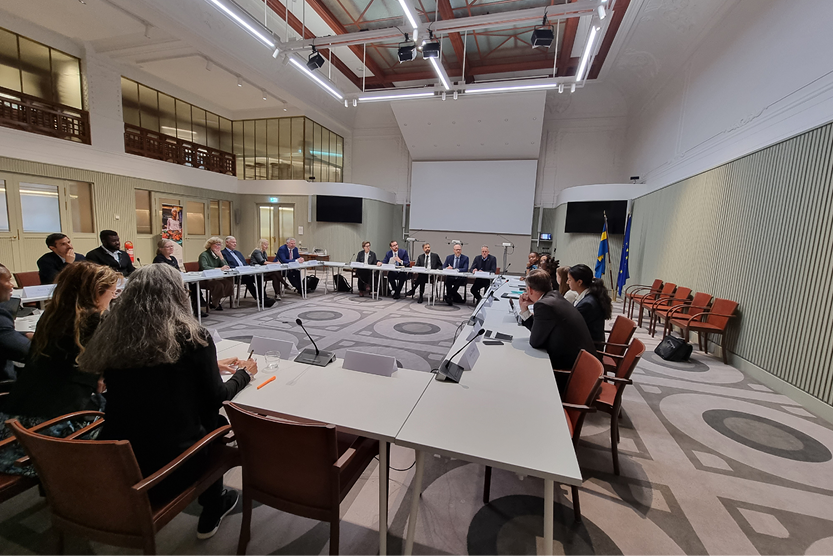On the occasion of IFAD President Dr. Alvaro Lario´s visit to Sweden, several Swedish actors had the opportunity to dialogue on how to scale up investments to transform rural food systems. Such transformation will ensure food security and safeguard the very existence of millions of rural people whose lives and livelihoods are threatened by climate change, local conflicts, crop and animal diseases and infrastructure deficits.
Food systems play a crucial role not just in building up economies and rural development but also in supporting the fight against extreme poverty and climate change. In addition to food production, which is often the starting point of discussions, food systems encompass everything from farming to consumption, including ecosystem functions, food distribution, processing, commercialisation, waste management and the governance frameworks that guide these components.
In recent years, there has been a noticeable increase in poverty and food insecurity among rural smallholders. According to the latest State of Food Security and Nutrition in the World (SOFI) report, over 122 million more people globally are facing hunger since 2019. This is partly due to the Covid-19 pandemic, repeated weather shocks, disease outbreaks and conflicts. Unfortunately, food insecurity affects more people living in rural areas who are vital to improving the resilience of local food systems and feeding their communities. Small farms in Africa and Asia produce approximately 70% of the food, but many lack access to essential services, resources, commercialisation opportunities and infrastructure, making it difficult for them to make a decent living.
”Investments in small-scale farmers and in their adaptation to climate change, access to inputs and technologies, and access to finance to set up small agribusinesses can make a difference.”


